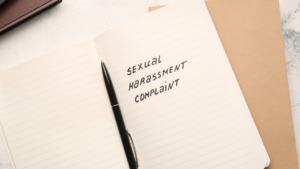Some employees find themselves in the following situation over and over, which often turns into some type of vicious cycle of losing a job over and over. They start a new job where things seem to be going well. After some time, they notice some kind of impropriety or violation at their workplace that might or might not personally concern them. This could be a certain safety violations, violation of tax or financial laws, or harassment / discrimination concern. They share this concern with their management, after which the relationship between that employee and his superiors becomes sour, where the employer might start retaliate against that employee in more or less obvious ways – anything from not being as nice and friendly to that employee to giving him less desirable work schedules or less desirable project, or going as far as setting that employee up for failure by accusing that employee of poor performance, which often leads to suspension, demotion or termination. Sometimes this type of retaliation is unlawful, while in many cases it is not and there is no basis to make any type of legal case. If the employee in question is not terminated, his life at work becomes harder and more stressful due to the employer’s changed attitude toward him.
 So, how do avoid being in this type of situation, if that’s not what you want? -One effective way to do this is considering the costs and benefits of complaining before you actually complain about anything to anyone at work. An experienced employment attorney should be able to help you consider all the important factors in that decision, including the legal and practical considerations that apply specifically to your work and life.
So, how do avoid being in this type of situation, if that’s not what you want? -One effective way to do this is considering the costs and benefits of complaining before you actually complain about anything to anyone at work. An experienced employment attorney should be able to help you consider all the important factors in that decision, including the legal and practical considerations that apply specifically to your work and life.
Complaining might be the right thing to do in some circumstance, and it’s not a good idea at all in other situations. Sometimes, it’s better to complain about a violation as soon as possible while at other times – it’s better to wait and complain later.
In some cases, it’s better to complain internally to your higher management, while at other times, it’s better to complain to an outside agency such as the civil rights commission, EEOC, and OSHA, and sometimes it’s better to do both – complain internally and to the relevant government agency. Again, you lawyer should be able to advise you what to do and when, how to draft your complaint to be both most effective and potentially serve as evidence in any future litigation.